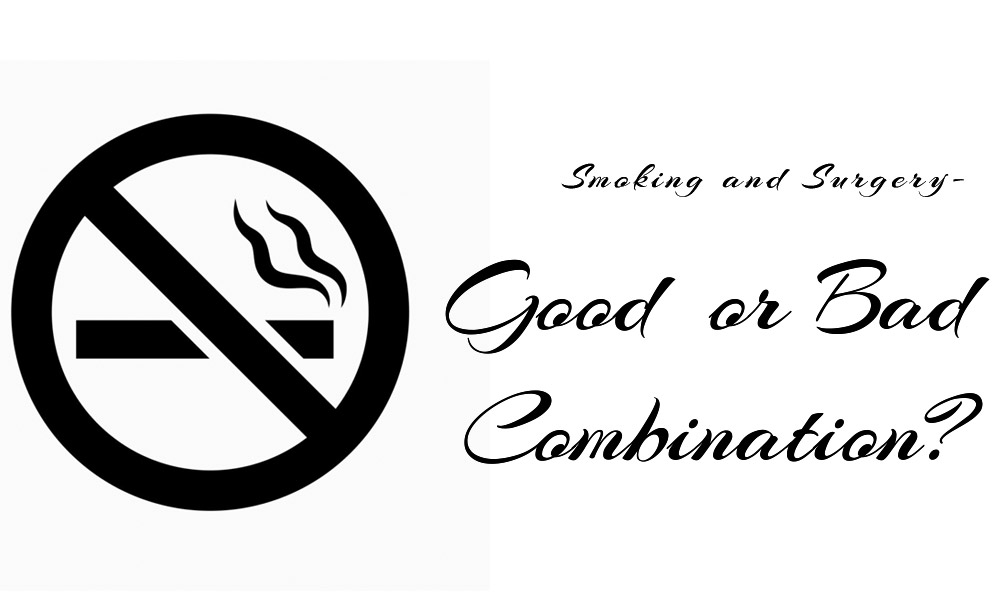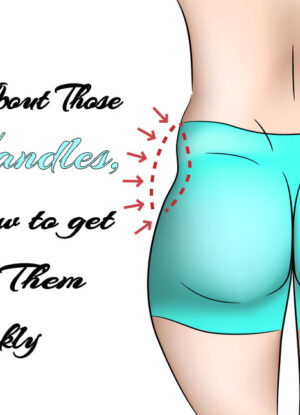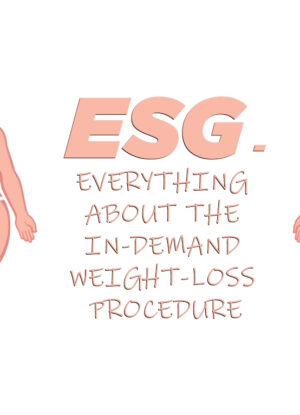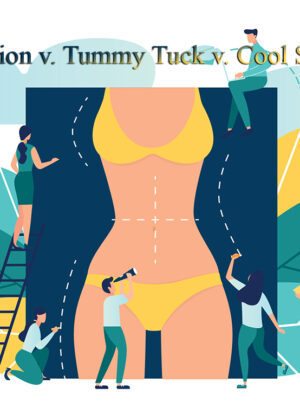No products in the cart.

Smoking and Surgery – Good or Bad Combination?
It was a wonderful day, bright and beautiful. It was a new year, and this year she clocks 40. Ahhh! The amazing 40! She was going to have a big birthday bash come October 25th. But today, she must concentrate on the task ahead. She was finally having surgery! Bimbo is excited beyond words as she eagerly looks forward to the surgery results in a couple of months.
After giving birth to her three designer dresses. “Keto diet and exercises seemed too slow though she cheated most times”. She admits to herself. But that isn’t the crust of the matter. She can’t seem to muster the courage to get fully naked before her husband in the bedroom. She couldn’t have him see, let alone touch her battle scars from the last cesarean section birth.
Yes, her husband didn’t mind and treated her like an Amazonian Queen as he practically worshipped the ground she walked on, yet she didn’t feel whole enough to bask in the warmth of his love until she could get rid of the bloated abdomen and large love handles. And today was that day.
The day starts for Bimbo, like every other day, with a cup of tea and a light breakfast followed by smoking 2 sticks of cigarettes as she checks her Instagram feed for product orders from her clients. Except it was the second day in the New Year 2021- she is scheduled for liposuction that evening.
Her plastic surgeon had assured her the surgery today was the beginning of the journey to getting her on the road to looking fabulous again at her last consultation appointment one month ago. Though it would be the first in a series, she was resolute in her new year’s resolve to do all it takes to look amazing and feel again.
With this thought, she looks at the checklist of things not to do in one month leading up to the surgery date as directed by her doctor. She had followed most of the nutrition and some exercise rules, but she couldn’t kick the smoking habit. She was a highly active businesswoman, and smoking helped calm her constantly pumped-up nerves. So she had reduced her smoking from 5 sticks a day to 2/day, even that was a struggle.
Even now, she needed to relax, and the jasmine tea she took earlier wasn’t catching up with her nerves. ‘Well what the hell! The doctor doesn’t have to know’, she thought to herself. ‘Besides what has smoking got to do with a surgery in the stomach area?’. So she lights the cigarette and takes a long full drag. ‘Ahhh! That’s better, feeling calmer already,’ she thought to herself.
She would wash her mouth with the smoker’s toothpaste and mouth wash she bought from Paris on her last trip and use her killer perfume to disguise the nicotine smell in the evening on her way to the surgery.
Time for the surgery, she got to the hospital two hours early, as she needed to be prepped, plus she couldn’t stay still. The Anaesthologists checked her vital signs and hooked her up to the machine. All seemed well – the surgery begins in thirty minutes.
However, one hour into the surgery, the oxygen monitor and heart rate machine started to go haywire. Her heart rate was slowing down dangerously; there was no time to lose; the surgery had to be paused while the problem was investigated.
Suddenly, the surgeon and anaesthesiologist had a light bulb moment; they remember seeing a note in her medical file that said she was a smoker. Quickly, albuterol (a bronchodilator medication) had to be administered. The surgeon orders the original calibrated oxygen levels to increase while they struggle to get her heart rate stable enough to continue the surgery.
It was a near miss! It’s one month after the surgery; she had survived the surgery but somehow slipped into a coma for seven days post-surgery. The coma was a result of complications during the surgery. She is back home now, and in recovery, the wounds won’t heal; she is feverish and has the chills and isn’t breathing right. Plus, there is this continuous cough and chest pain.
She is miserable and confused as this isn’t what she bargained for. Her checkup with her doctor reveals she has post-operative pneumonia and irregular blood clots due to complications from the surgery. She isn’t out of the woods yet as she has to be placed in the intensive care unit as her immune system is compromised, and she can’t fight this infection without adequate care and treatment from the hospital. At this rate, the doctors are more worried about keeping her alive than continuing with the liposuction process.
The diagnosis from the lab regarding all the complications she is experiencing leads back to her smoking habit. High levels of nicotine in her blood had impaired her immune functions. The same nicotine was stopping her healing process from commencing. Her body could not stand the strain and needed constant oxygen in her blood.
She had to admit to her doctor that she didn’t follow his instructions regarding smoking. Now her husband is pissed, plus she had replaced old scars with new thick scars that won’t go away, and she had not hugged her kids in two months. She can see the fear in their eyes through the glass doors when they visit; she is isolated from them to avoid spreading the infection.
If only she had listened to her doctor, if only she had quit smoking a month before the surgery, if only she hadn’t cared so much about her size four looks, if only she hadn’t smoked just before the surgery, if only… ‘Lord, please don’t let me die’ was her last thought as she slipped into a long sleep.
If you smoke and are having surgery, physician anesthesiologists recommend quitting smoking as soon as possible before the procedure. It’s also important to meet with your physician or anesthesiologist about your smoking and how it might affect your anesthesia care plan’. This is according to the American Society of Anaesthesiologists.
As you begin the new year armed with your resolutions and goals (Did you include the shapewears you intend to blossom beautifully in this year? Lol!), please make resolutions for your health and wellness as well. The new year is a new chapter to rewrite your story, begin your journey to the best time of your life, and resolve to kick old bad habits and imbibe new, progressive habits.
We at Damidols invite you, ‘our lovelies’ to kick the smoking habit. It doesn’t matter whether you are going for surgery or not. The government and medical associations were not kidding when they advertised ‘smokers are liable to die young.’ Smoking is detrimental to your health in ways beyond infectious disease.
For one example, as seen above with Bimbo: it affects how the body responds to surgery. Some plastic surgeons and certified practitioners have, for this reason alone, blatantly refused to operate on smokers to avoid death or disability resulting from complications.
However, not all doctors put up the drastic wall; some ask patients to stop, or in the worst case, reduce smoking cigarettes before and after undergoing a surgical procedure. The request makes sense because quitting even some days before surgery—plus staying smoke-free afterward—reduces the risk of some complications, re-oxygenates the blood, and aids the body to heal better and faster post-operation.
Still, wondering how or why smoking and surgery shouldn’t mix according to the experts? Let’s turn to the experts behind BecomeAnEX®, a digital quit-smoking program by Truth Initiative®, developed in collaboration with Mayo Clinic, to answer three common questions about smoking and surgery.
After a buttock lift, how long does it take to recover?
Buttock-lift surgery is a major procedure that takes two to three weeks to recuperate from before you can resume your usual activities. It might take up to six months for you to fully recover. It will speed up your recovery, enhance your outcomes, and reduce problems if you are in excellent health, don’t smoke, and have adequate support following surgery.
Buttock lifts produce long-lasting results. Weight changes, pregnancy, and age, like with any operation, will impact the body and the effects of your gluteoplasty or butt lift. You may preserve a youthful contour for a long time if you engage in a healthy lifestyle and prevent major weight gain. Also, you must follow your doctor’s advice to the letter. Maintain a stable relationship with your surgeon to ensure they know how your recovery is progressing.
In the end, a buttock lift can give you a more toned appearance by removing extra skin and fat from your buttocks. The effects of a buttock lift are typically long-lasting. Keep in mind that keeping your weight constant is critical to preserving your results. However, suppose you find all of these processes to be too life-altering for your taste, not to worry. In that case, there are amazing butt lift shapewears that can provide you with the desired look, albeit temporarily. All you need is to pair your outfit with the garment and presto! You are looking beautiful. But then, you are always beautiful inside and out.
Here Are Three Questions and Answers Regarding Smoking and Surgery.
Does smoking affect people having surgery?
Yes, “Smoking before surgery puts you at a higher risk for post-operative heart attacks, blood clots, pneumonia and even death,” says pulmonologist Humberto Choi, MD. “When I schedule surgery, I tell my patients they should stop smoking right away.”
Research in recent years has shown that when compared to non-smokers, smokers have a higher chance of being exposed to surgery-related complications like heart attack, stroke, shock, and even death. Smoking deoxygenates the blood and decreases blood flow, making surgical wounds less likely to heal and more likely to become infected.
Smoking also weakens the immune system, which increases the chance of infection after surgery by opportunistic infections and parasites. Smokers are more likely than non-smokers to experience specific complications from all types of surgeries, even cosmetic surgery. For example:
- Plastic surgery: higher scarring possibility.
- Liposuction: Takes longer to heal, fat necrosis, blood clots, thick scars, and higher pain levels.
- Breast reconstruction surgery: more likely to lose implants.
- Abdominoplasty: Tissue necrosis, possible reopened incisions, impaired blood flow, non-healing wound.
- Cool sculpting: Smoking affects your exercise regimen effectiveness after the procedure and your body’s healing abilities.
- Spinal fusion surgery: higher chance of infection and bone fracture.
- Orthopaedic (bone or joint) surgery: bones can take longer to heal.
- Plastic surgery: higher scarring possibility.
In short, smoking increases your risks for massive and minor complications during plus after surgery. It also ruins your results.
Why are smoking and surgery a bad combination?
As seen with the case of Bimbo above, Dr. Choi, in an interview, explains why smoking before surgery is hazardous:
1. It complicates anesthesia “Anesthesiologists have to work harder to keep smokers breathing while under anesthesia, fighting against lungs compromised by cigarette smoke,” says Dr. Choi. “That makes it more likely that bronchodilator medications like albuterol must be used.” The American Society of Anesthesiologists reports that smoking reduces blood flow and your surgical incisions are more likely to become infected by opportunistic parasites since it slows healing.
2. The heart must exert more effort. Smoking impairs heart function, making a patient more susceptible to cardiac issues during or after surgery. According to the same JAMA research, smokers had a 77 percent higher risk of a heart attack following surgery than non-smokers. Tobacco harms your heart and blood vessels. They cause cardiac rhythm disturbances, inflammation and raise blood pressure and heart rate. Furthermore, smoking raises your chances of developing heart failure, having a heart attack, and dying from heart disease.
3. It takes longer for wounds to heal. Carbon monoxide deprives tissues of the oxygen they require to mend in a smoker’s body. Toxins in smokers’ blood also infiltrate the tissue, complicating the healing process. Because oxygen is the major supply for healing wounds, you may be more susceptible to infections if you don’t quit smoking before surgery. Even if you stop smoking 24 hours before your operation, the amount of oxygen in your body will rise. Whether you’re a first-time smoker or have been smoking for 20 years, quitting smoking before surgery is critical to determining the success rate of your surgery.
The good news is that an impending operation may be precisely what a smoker requires to quit finally. It’s never a bad thing to give up smoking, and your forthcoming surgery could be just the reason or motivation you need. Consult your doctor for information on resources or activities that might assist you in quitting smoking as soon as possible.
“Surgery is a fantastic moment to stop,” Dr. Choi explains. “When I go over the dangers of pneumonia, heart attack, and mortality with patients, it helps them realize the heightened risks they’re facing and how they may improve their result.”
Does quitting smoking help with surgical outcomes?
In a recent research study, patients having coronary bypass surgery were examined to determine the impact that smoking has after surgery. Patients who smoked had more than twice as many avoidable heart and lung complications than patients who didn’t smoke. Astonishingly, patients who had quit smoking for just one month before surgery showed no complications like patients who had never smoked.
The scientists concluded after the study that quitting cigarettes before surgery makes a huge difference. The longer the quitting time, the better the results. Be that as it may, quitting a day or two before any surgery can make a tremendous difference. This is because, just within a day or two after the smoker quits, the blood re-oxygenates, the body can move more oxygen to cells, and general blood flow improves, making it easier for healing. Three to six weeks after stopping, the body’s immune function against opportunistic infections improves.
Final thoughts: As with Shakespeare’s question, “to be or not to be…”, to smoke or not to smoke, the final decision is yours. Smoking on its own has both immediate and long-term hazards that it can inflict on your health or life. To complicate it with a very strenuous procedure like surgery of any kind is to expose oneself to uncertain hardships.
Do you want to be like Bimbo? Been isolated for months and subconsciously asking open-ended questions while hanging between the ropes of life and death? Or do you want a full life complete with the health and wealth to pursue and enjoy the fruits of your goals?







Leave a Reply